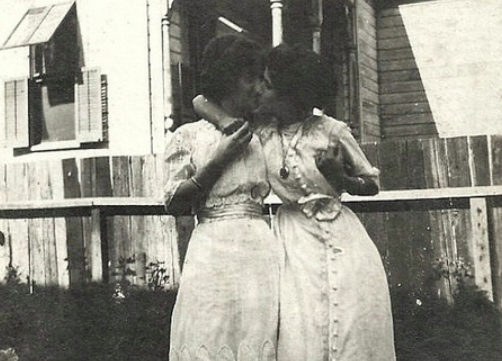How do you feel about the idea that our beliefs create our reality?
It may sound overly simplistic, I know. It’s not lost on me that the adage that we must change our stories to change our lives is a bit of a cliché by now. However, in my experience, it’s powerful stuff in real life.
Because it sounds simple, many never decide it’s worth an honest effort to find out if it’s true. After all, if it were true, wouldn’t we all have changed our lives and gotten exactly what we wanted already? Not so fast. Though it’s simple in theory, it’s much more challenging in practice because we are deeply invested in our current thinking. To change our thinking is completely disruptive to our comfort zone, our identities and world views. I hit up against this constantly with my coaching clients.
The first thing I do is forbid them from speaking about their challenges as problems, because that line of thinking perpetuates their stuck beliefs. Instead, I ask them to tell me the experience they’re having that they’d like to change and then I have them paint a vivid and detailed picture of what they’d like instead.
As they begin telling me what they want, they often admit that imagining themselves actually having it feels totally unrealistic. This is where we usually get to see exactly which beliefs have gotten them to where they are, and how these beliefs have prevented them from moving toward where they want to go.
I ask my clients why it feels unrealistic and take note of their answers—because each reason they give is actually an example of the very beliefs they are operating by. These are their limiting beliefs. Next, I ask what alternative beliefs might better support their goals.
If we want something we’ve never had before, we’ve got to do something we’ve never done before. Sounds simple, but it requires action. We have to identify which new beliefs might support us better and expose ourselves to experiences that would prove those new beliefs true. That’s how we update our thinking.
We make some of our most counterproductive assumptions and hold some of our most damaging beliefs within our romantic relationships—and those assumptions and beliefs create our relationships!
So, let’s create something different instead. Let’s make assumptions that will land us much closer to the kind of communication and care that we actually want to give and receive from one another. The following are some of the healthiest and relationship-friendly assumptions we can make about those we care for:
1. They want connection as much as we do.
Whenever I start to assume that someone is disconnecting from me because they don’t want connection as much as I do, I remember that deep down, every human being wants to choose connection over disconnection. It’s only when we’re angry, hurt, or fearful that we don’t.
Considering how much fear most people walk around with, not to mention the anger and hurt we often live with, it’s not surprising that many of us have picked up the belief that others don’t want to be connected as much as we do since that’s often exactly how it looks from the outside. It helps to remember that that’s probably what people think of us, as well.
To break the cycle, we can assume others want to be connected. When we start from that assumption, we are much more open and inviting and we give them the opportunity to prove us right.
2. They want a partner who challenges them.
Whenever I start to wonder if I’m asking too much of my boyfriend or whether my standards challenge him more than he wants to be challenged, I remember that growth is an essential human need and that we can’t actually feel fulfilled in life without it. Deep down, we all crave challenge.
Many would stop me here and point out that most people they date don’t seem to want a challenge. Instead they seem to disappear when things get hard.
I hear that, but I know it’s only our fear of failure that keeps us from embracing challenge. And while avoiding the challenges that would grow us may seem easier than facing those fears, doing so won’t actually make us happy.
Of course, not everyone is going to feel ready for the challenges at hand and we may have to accept that, but nevertheless, we’re better off asking people for their best than assuming the worst of them.
3. The unkind things they do stem from fear.
Whenever I feel hurt by something my boyfriend does, I remember that people want to be good. Every unkind thing we do stems from some belief (however misguided or selfish) that if we don’t do it, even worse things will happen.
My boyfriend, for example, often gets quiet and distant after we argue. It would be easy to take it personally and assume that he is ignoring me in order to be mean, but perhaps it’s more accurate to assume that he does it out of fear. Perhaps he fears that if he tries to reconcile before giving himself enough space, he’ll get angry all over again. Or perhaps he keeps his distance because he fears I’ll hurt him again.
4. They want to be generous.
Knowing that we’ve made a contribution is essential for human fulfillment, so it follows that everyone wants to be generous. The issue arises when we feel scarce. Many people spend a lot of time and energy evaluating who in the world deserves their love and kindness.
We carefully consider how much of our love people we care about have earned. We argue with ourselves whether the panhandler on the corner deserves our dollar. We save our smiles for people who smile at us first.
The common thread between all of the ways we conserve our love is that we are afraid if we give it freely, someone who doesn’t deserve it will take advantage of our generosity and we will end up depleted.
But what if we assumed that everyone wanted to be generous and the only thing holding them back was fear? Could we start a chain reaction of generosity?
When I’m generous, it tends to soften other people’s barriers. As a result, I always get more in return than I’ve given up, either from them or from the sheer joy of giving.
5. Our vulnerability makes us more attractive to them.
Whenever I am afraid to be vulnerable, I remember that my tenderness is beautiful and my willingness to let people see it is what draws them to me and inspires their love for me.
When I expose my vulnerability, I get to be 100% authentically me, and that’s the only version of me that anyone can feel deeply connected to.
We all know our own weaknesses and imperfections, so perfection in others feels alienating to us. We might admire it from afar, but it’s the flaws and quirks that really make someone lovable.~
Now, I know that some people are going to disagree with me that these assumptions are true of everyone we encounter, but I’m going to insist on them anyway because I know that deep down inside every relatively sane person, they are true.
Even if we don’t get the exact results we want, believing in the best of people is a great way to bring out their best, and when that doesn’t work, it’s a great way to see their true colors.
What do we have to lose?
Relephant:
4 Habits that Signal Relationship Doom.
Bonus:
~
Author: Summer Engman
Editor: Caroline Beaton
Image: oakenroad/Flickr
 Share on bsky
Share on bsky


Read 5 comments and reply